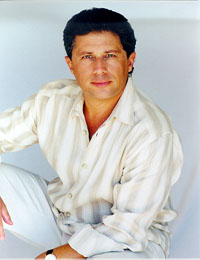 I have been searching for a metaphor to describe the ending of the spiritual path, about which people never speak. I found it today, or rather it found me, in the theater.
I have been searching for a metaphor to describe the ending of the spiritual path, about which people never speak. I found it today, or rather it found me, in the theater.
In the movie "Shine" a young pianist named David Helfgott wanted to perform Rachmaninoff's Piano Concerto No. 3 in D Minor. At first his mentor tried to dissuade him. He said that no one so young would be mad enough to attempt to play the piece; it was too dangerous. David said he was mad enough to try. His teacher relented, but told him that he would have to learn every note as it was on the page. He would have to play it blindfolded. And then, only then, he would have to forget them. He had to learn the notes, then forget them; then the music could be played.
He practiced and practiced. His fingers became demons of speed and agility. His practice carved new routes of responsiveness in his brain. He was told to be bold in his attack. He attacked with single-minded focus. He learned the notes and the piano shook. He grew in his madness.
One day, the piano strings broke under the boldness of his attack. The teacher said with a broad smile, "Ah, now we're getting somewhere." Then came the day of the performance. It was stunning. The notes were forgotten in the furious play. How could that playing be contained in the notes? It is not possible. That stunning fury of beauty and power could only come through impeccably empty canyons. The emptiness is what practicing the notes with boldness left behind when the piano strings broke.
This is the metaphor I had been waiting for, because I did not know how to say, to myself, that something, some defining moment, some breaking point, had occurred. When I tried to say what had happened, it sounded to philosophical. The music and the piano had collapsed under the bold attack of practice and grace. There was only music.
My teacher used to talk about the goal of mantra meditation as being the union of mantra, its meaning, and the meditator. That's all he would really say. It never hit me with any force during all the times I heard him say it.
One day, as you practice what your teacher tells you to practice, your piano strings will break. This means you have carved enough emptiness in your self to allow the furious play of true living. True living will have claimed you. From then on, you cannot practice; you can only live. When the piano strings break, you break. Canyons of emptiness remain.
When I saw the piano strings break and the furious play that came in the aftermath, I understood. When the notes, the music it represents, and the player become a single creative force, then the true music just pounds into consciousness with a delicate fury of enchantment beyond description.
When it has become enchantment, the further work is to love the music, to be taken over and over by it in fits of love-making. Do not let the mind enter. Do not let the practice enter. Let all that go; do not fix the piano strings. The piano that is played with no strings is a canon to conventional ways. Even teachers are conventional after you, through your bold attacks and relentless practice, have snapped the taut strings. You are now a lover of your own life, and free to age and ripen in this cask of canyons booming with silence.
So, we should learn the notes and practice the scales. We must sit on the bench and keep our feet on the pedals. We must let our brains become responsive and our fingers agile and our heart pliable to the music. Be tutored and encouraged and admonished. We should do all of this. Let the music burn around our edges and grow hot towards the center. We should do all of this. And one day, the piano strings will break and we will not be able to lay them out straight again. The music will come through us directly from the creative source.
The point of it is to become mad enough to be an empty canyon. We are not to become pretty pianists who carry sheet music around and converse with others in coffee shops about what we have heard in concert halls. The point is to become mad enough to let what possessed Rachmaninoff possess us. Then there is the union from which the music of the end of the path can be heard and played without a piano, without a bench, without fingers or sheet music or teachers.
May everyone be at peace, in love, and know their most perfect Self.
Robert Rabbin is an author, speaker, and advisor. He can be reached via e-mail at [email protected], or by writing: 2629 Manhattan Ave., Ste. 192, Hermosa Beach, CA 90254. His new book, The Sacred Hub (The Crossing Press, ISBN: 0-89594-837-0), is available in bookstores or from the publisher at (800) 777-1048.
"Echoes in Silence" is a bi-weekly column by Robert Rabbin--author, speaker, and advisor--who has spend thirty years using self-inquiry as a means to explore the true nature of self, mind, reality, and consciousness.
His new book, The Sacred Hub (The Crossing Press, ISBN: 0-89594-837-0), is available through the bookstores nationwide.